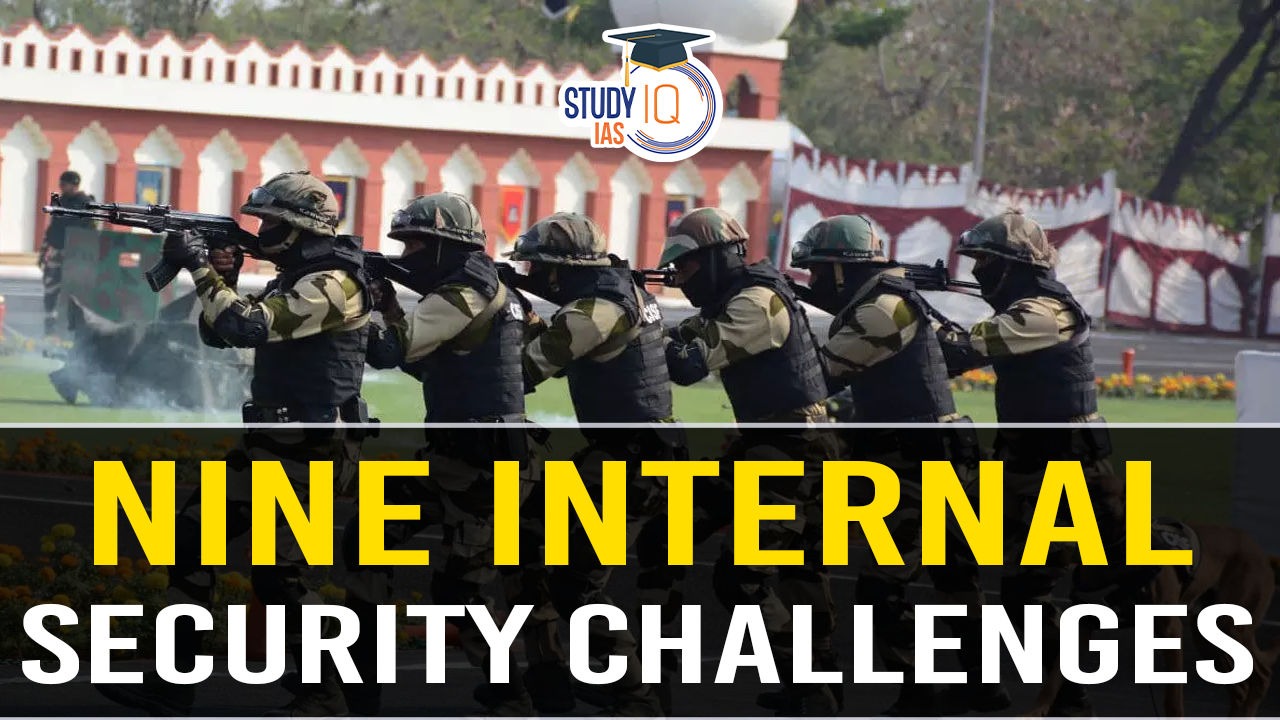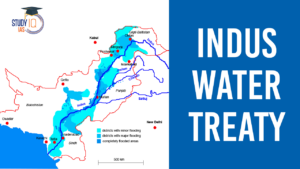Table of Contents
Context
The newly formed government needs comprehensive government planning to strengthen the internal security.
India’s Internal Security: A 9-Point Plan
The newly formed government in India requires a comprehensive plan to enhance internal security. Here is a detailed 9-point plan for bolstering India’s internal security:
1. Internal Security Doctrine
- Current Situation: India lacks a formal National Security Doctrine (NSD) despite efforts by the National Security Advisory Board.
- Proposed Action: Develop an NSD that clearly outlines both internal and external security challenges. This doctrine should include specific policies and strategies to address these issues.
- Priority: Emphasize the internal security component of the NSD to minimize reliance on ad-hoc measures and ensure consistent and coordinated responses to security threats.
2. Internal Security Ministry
- Current Situation: The Ministry of Home Affairs is overwhelmed with various responsibilities, causing delays in addressing crucial internal security issues.
- Proposed Action: Appoint a junior minister with independent charge of internal security. This will ensure focused and timely attention to internal security matters.
3. Jammu and Kashmir
- Current Situation: Although there are claims of a 66% reduction in terror incidents, recent attacks in Jammu indicate persistent threats.
- Proposed Action: Take early steps to reorganize the security grid in Jammu and Kashmir. Additionally, work towards restoring statehood and conducting Assembly elections to enhance local governance and stability.
4. Northeast India
- Framework Agreement: The 2015 Framework Agreement with Naga rebels remains incomplete due to demands for a separate flag and constitution.
- Current Stalemate: Vague terms in the agreement and the government’s firm stance against any separate constitution or flag post-August 5, 2019 decisions on J&K have stalled the Naga peace process.
- Proposed Action: Implement the Suspension of Operations agreement strictly to curb extortion and forced recruitment.
- Manipur: The ethnic conflicts in Manipur require direct intervention from the Prime Minister to restore peace.
- Broader Issues: A comprehensive strategy is needed to address illegal migration, drug trafficking, and arms smuggling in the region.
5. Naxal Problem
- Current Situation: Naxal violence has significantly decreased since 2010, with a 73% decline and fewer affected districts.
- Proposed Action: Initiate a healing process by declaring a unilateral ceasefire. Engage in negotiations with Naxal groups and address their legitimate grievances to integrate them into the mainstream.
6. Intelligence Bureau (IB) and Central Bureau of Investigation (CBI)
- Intelligence Bureau:
- Current Basis: Operates under an administrative order from 1887.
- Proposed Action: Provide a statutory basis for the IB, including safeguards to prevent its misuse for political purposes.
- Central Bureau of Investigation:
- Current Limitations: Needs improved legal mandate, infrastructure, and resources.
- Proposed Action: Strengthen the CBI in accordance with recommendations from a parliamentary committee.
7. State Police
- Current Situation: State police forces are often viewed as “Ruler’s Police.”
- Proposed Action: Transform them into “People’s Police” by prioritizing reforms and focusing on public service and community relations.
8. Central Armed Police Forces (CAPFs)
- Current Issues: Internal challenges such as unplanned expansion, inadequate training, and inappropriate selection criteria for officers.
- Proposed Action: Establish a high-powered commission to address these internal issues and ensure that CAPFs are well-prepared and efficiently managed.
9. Technology
- Proposed Action: Launch a dedicated technology mission to identify and recommend advanced technologies that can be adopted to tackle current and future challenges faced by the police. This mission should focus on enhancing the technological capabilities of law enforcement agencies to improve efficiency and effectiveness.


 Phenome India Project: Mapping India's H...
Phenome India Project: Mapping India's H...
 UDAN Scheme, Objectives, Funding and Ach...
UDAN Scheme, Objectives, Funding and Ach...
 Indus Water Treaty 1960 Suspended by Ind...
Indus Water Treaty 1960 Suspended by Ind...





















